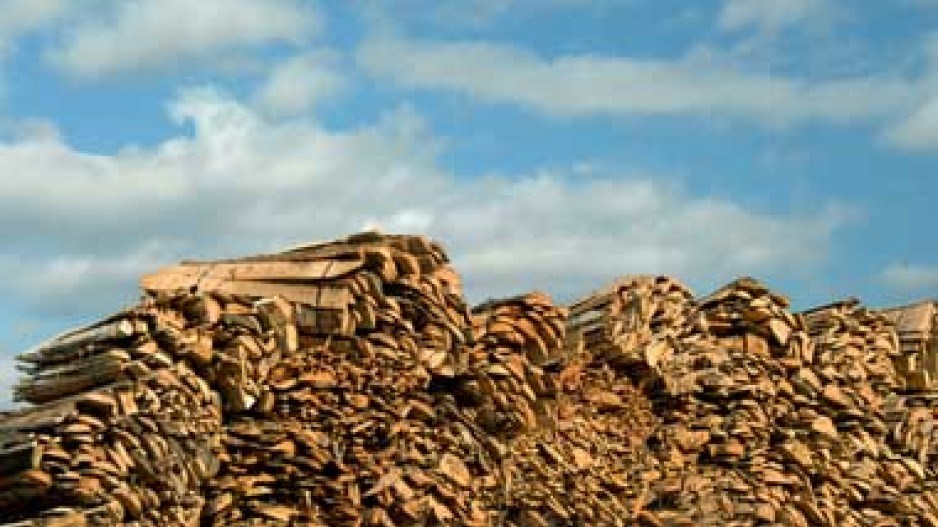B.C. lumber exports to China took a sharp dip in December, while raw log exports increased, according to BC Stats.
Overall, B.C. softwood lumber exports to China grew significantly in 2011, surpassing the $1 billion mark for the first time ever, according to the Ministry of Jobs, Tourism and Innovation.
However, in December lumber exports to China dropped 23%, compared with December 2010. Lumber exports in December 2011 were worth $88.7 million, down from $116.6 million in December 2010.
Pat Bell, Minister of Jobs, Tourism and Innovation, told Business in Vancouver he's not worried about the dip, and expects to see May and June numbers dip as well in comparison to May and June of 2011, because it will be hard to match those months' rapid growth numbers.
"That doesn't particularly concern me," he said. "Most of the folks I talk to in the industry today believe that we'll see a 20% growth year-over-year."
While the value of lumber exports to China dipped in December 2011, log exports increased 79% – to $19.7 million, up from $10.1 million in December 2010.
Those numbers worry Hanif Karmally, CFO for Teal Jones, who said raw log exports to China are directly affecting exports of higher-value lumber.
In 2010, for every 100 board feet of lumber exported to China, B.C. exported about 29 feet of raw logs, he said.
"In 2011, the log volume went up to 36% of the lumber exported," Karmally told BIV. "That's why our mill doesn't get enough logs to run, and that's why nobody's going to put up another sawmill on the coast."
Bell said local lumber producers get first refusal on logs, which are posted for sale domestically before being offered to overseas markets. He said the logs exported to China tend to be lower value – cedar, for example, cannot be exported.
"If they chose to block [the sales], they have that ability," Bell said.
With the exception of December's dip, total softwood lumber exports to all markets increased by 7% in 2011 to $3.8 billion.
The U.S. is still B.C.'s largest customer, accounting for almost $1.6 billion of exports. But China is gaining on the U.S., and now accounts for 32% of B.C.'s total volume of exports of softwood lumber.
Japan is B.C.'s third largest market, buying $648 million worth of B.C. lumber in 2011,
followed by South Korea. Exports to South Korea increased 30% to $55.6 million in 2011.
Despite a global economic slowdown, the B.C. government expects exports of softwood lumber to China will continue to grow in 2012, thanks to an aggressive housing strategy in China.



